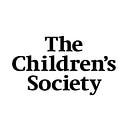Upon the publication of the Youth Voices Exclusions report
Author: Lucy Davies, Insight and Engagement Officer in the Disrupting Exploitation Programme
The Youth Voice on School Exclusions Report, jointly published by the Disrupting Exploitation Programme (funded by National Lottery Community Fund) and our Youth Voices Teams, explores the lived experience of young people who have experience of school exclusions. Themes of power imbalance and relationships, both positive and negative, run through the report and amplify the often-unheard voices of children who have direct experience of this system. While data shows the link between exclusion and exploitation, the voices of young people bring this data to life, providing a roadmap for professionals to navigate the complexity of this issue.
Within most areas of Children’s Services it goes without saying that the child’s voice is paramount. For individual children and young people, the necessity for this participation is clear; children deserve a say in their future — and indeed their present.
But how does this translate into real, substantive systems change work?
Upon the publication of the Youth Voice Exclusions report. I have been considering the often-unspoken challenges of children’s lived experience of school and sometimes extreme emotions about their school lives. The nominal subject of this report is that of exclusion, but the voices of young people in the report give an insight into all areas of school and social life and make clear the extent to which school is enmeshed in every aspect of the life of a young person. I have heard numerous social workers and police officers express the sentiment that school is the single greatest protective factor in the life of a vulnerable young person. And yet, for those most vulnerable young people excluded or at risk of exclusion, they are left struggling to cope in an institution nominally designed for their education and protection.
Power imbalance is a running theme throughout the report. This power imbalance is in part a necessity; we have all heard the sarcastic classroom question: “I’m so sorry, is my lesson interrupting your conversation?”. All voices cannot be equally weighted in a classroom situation in which a teacher is being employed to teach a lesson. Still, the feeling of powerlessness invoked by the voices of young people suggests a much greater imbalance than that which is perhaps necessary between teacher and student.
‘At the end of the day they’ve got more power than you but yous are equal.’
Interestingly, struggling and overworked teachers can express their own feelings of powerlessness — describing schools in which children can disrupt classes, spark conflict and show disrespect. In a teacher questionnaire conducted by the Disrupting Exploitation Programme, teachers told us of the lack of support available from senior staff to manage behaviour. Classroom teachers, much like students, feel helpless, making quick decisions without the space for reflection and overwhelmed by the many and conflicting demands placed upon them.
This gulf in lived experience of the school and exclusion system demonstrates the absolute obligation we have as professionals to seek out and listen to children’s voices. Working in systems change, we talk about changing language and changing culture. We know that altering institutional values which have been developed over decades of practice is not a process that can be decided upon and implemented overnight.
This report shows us the gravity of young people’s thoughts about school exclusions, painting a picture of isolation, unhappiness and helplessness which needs to be acknowledged. There are positives in the report too — about staff members who went the extra mile, the importance of having role models who look like you, the support that can be received in alternative settings — these remarks, equally, deserve to be heard. In their reflective and thoughtful insights, young people have drawn a map of how adults can help them.
While all concerns about inclusion in schools will not be solved by following to the letter the advice of young people, young people deserve to be a part of the conversation. If a supportive measure is unfeasible, the young person requesting it deserves to know why. If a power imbalance is necessary, that should be discussed outside the context of a confrontation. In a behaviour management session during my initial teacher training course, I was told ‘you must be able to pretend — pretend to be outraged, pretend to be furious’. Perhaps we also need to learn to stop pretending.
One of the first things I learned about systems change when I began work with The Children’s Society was that systems change is hard and takes a long time. But this report shows us that the first step towards changing a culture can be a simple open conversation. When we learn seriously to talk and to listen to children and young people, the broad disparities in our experiences can be narrowed. When school staff can be genuine humans, instead of untouchable authority figures, and when children can be heard instead of subdued, a cultural change can be established. This would allow full focus on the material problems faced by the education sector — lack of resources, lack of staff, lack of time — instead of the cultivation of a blame culture, which ultimately blames everyone and serves no one.
